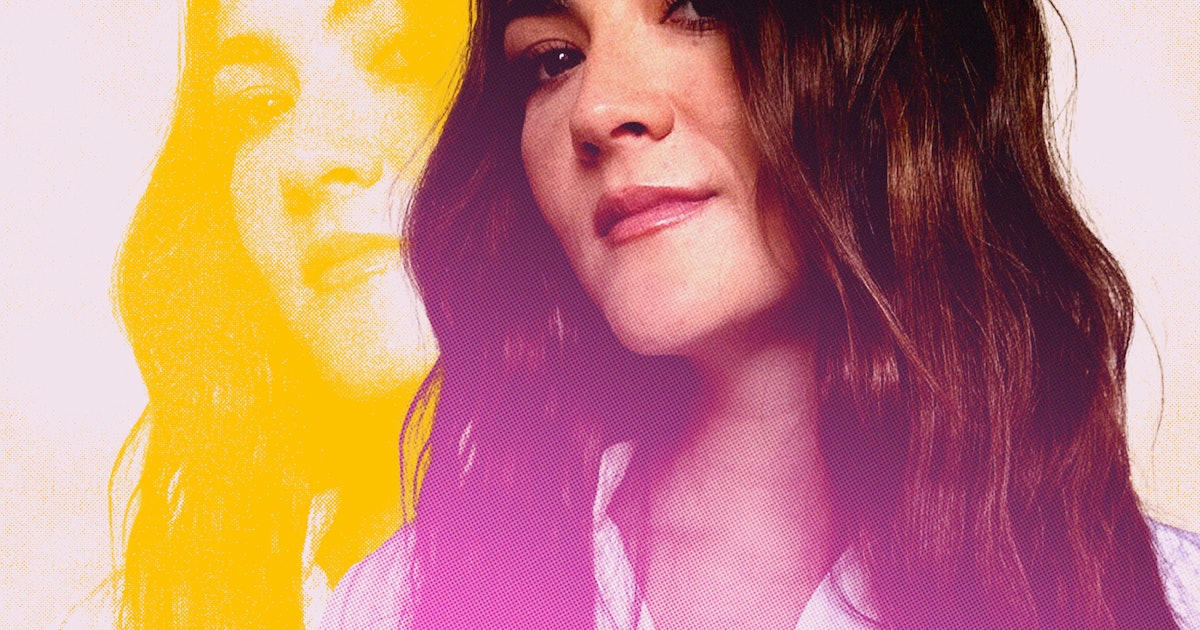At 27 years old, actor Isabelle Fuhrman is already an 18-year Hollywood veteran. She rose to prominence in 2009 with the cult horror classic Orphan (she says she is still most recognized as the psychotic “Esther,” despite being 10 when the movie was filmed). Over the years she has appeared in blockbusters (The Hunger Games), prestige dramas (The Novice), comedies (Sheroes), and more horror, including reprising her breakthrough role in Orphan: First Kill. Her latest film, Horizon: An American Saga, written and directed by co-star Kevin Costner, is a long-awaited, multi-part epic (she’s currently filming subsequent installments). But despite her successes — commercial, critical, and cult — Fuhrman has always wanted to have, as she puts it, a Plan B.
“I think I’ve always wanted to find a balance in my life … to cultivate that. I don’t think I’ll ever want to be just living in this bubble,” she tells Scary Mommy by Zoom. The idea of being trapped in a bubble became more pressing during the height of the pandemic, when no one knew what the future was going to look like. “I thought, ‘What if people never watch movies anymore? What if movies don’t exist? What could I possibly do?’” Fuhrman recalls. “And I remember being like, ‘Well, people will always have babies.’”
The thought didn’t come to her out of nowhere. In 2019, while she was working on the folk-horror The Last Thing Mary Saw, her co-star and subsequent best friend Stephanie Scott shared a video of a unmedicated home birth. “She was obsessed with watching them on Instagram,” Fuhrman says. “And I’d never seen a natural birth. I was born in a hospital, my sister was born in a hospital. I didn’t know that there was any other way to have a baby.”
The more she thought about it, the more interested she became. She was “profoundly emotional” about the various home birth and free birth accounts she followed. When a friend became pregnant during Covid and started planning for a home birth, Fuhrman watched The Business of Being Born with her, which only deepened her growing fascination and prompted her to tag along for a weekend-long doula course… which turned into a more intensive six-month course.
“It really just opened my eyes to our power as women and the power that our bodies have as women and how sad it is that we don’t teach young women that,” she says. “We have the privilege in this country of being able to pick and choose how you have a baby, but I don’t think that question is ever really presented to us as women. And that’s really sad to me.”
Certainly she’s attended births (all home births, she notes), but despite being certified as a holistic doula she’s not sure if she’s down to attend future births in that capacity, particularly with eight films coming down the pipe. For Fuhrman, the experience was more of self-discovery than vocational training.
“I just found so much more grounding in myself as a woman and understanding that men are cool and all that, but we bring in life in such a magical way,” she says. “And exploring what it might be to do something different for the first time really changed my perspective on myself, my relationship with myself as a woman and then simultaneously also really helped my career weirdly.”
Fuhrman explains that, while it’s clear to see her career has been successful from an outside perspective (particularly since films like Orphan have gained cult status through a slower burn) seeing that success “from the driver’s seat” hasn’t always been easy.
“I’ve experienced being cut out of a movie, I’ve experienced so many bouts of rejection, of getting all the way to the end, of being the last person and being between you and one other person almost every single time,” she explains. “And I think at this point I’ve become very secure over the last couple of years. … And so you kind of have this moment where you go like, ‘Okay, I’m very content. I love working on projects. I love working with new people. I love what I do. I love what I do … So I’ve just decided I’m just going to be really conscious about the choices that I make, and I want to work with people that inspire me and elevate my skill and make me rise to a certain level and occasion that I’ve never been to before.”
Of course that’s not to say that her doula training hasn’t crept into her craft. She recalls reading a script with “a really crazy birth scene,” something that, in the past, probably wouldn’t have struck her as unusual. But now “All I was thinking about was how in The Business of Being Born, [it] talks about how the only time we ever see women have natural births is this horrific, horrible experience. I was like, ‘This is one of them! This looks horrible! It seems so horrific.’”
Certainly, if anyone knows horrific…
She hopes to see improvement in the depiction of birth on screen: something that acknowledges the fact that, sure, birth can be scary and sometimes medical intervention is needed, but there’s more to birth than that.
“[Birthing women] are really portals to another world,” she says with reverence. “What a cool thing we get to do! And it’s talked about in such a way of, ‘It’s something you have to get through; the baby’s great, but the birth is just kind of this horrible thing that you get through.’
“But,” she acknowledges, “I’m saying this without any experience of actually having a baby. I think about that a lot: ‘I wonder if my perception on this will change after I have my own kids.’”
And… yes: anyone’s who’s given birth can tell you that going through it is going to shift your perspective to some degree. But going in with an attitude of humble awe probably won’t hurt.

